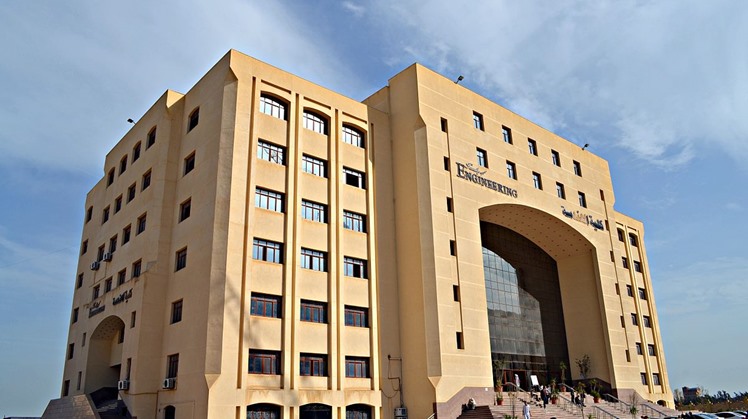In an innovative leap for agriculture, a group of students from the Artificial Intelligence College in Kafr El-Sheikh have developed a robot designed to assist farmers in completing agricultural tasks more efficiently.
Noura Yasser Helmi, one of the team members, said that the primary objective of the project is to aid farmers by using an app that tracks the crop cycle from planting until harvest, increasing the crop yield through sorting, and quality assessment. Interestingly, this application is versatile enough to be used for various crops.
The focus, according to Nurhan Jamal Abidin, has been predominantly on tomato cultivation due to its significance as one of the most widely used crops. The app is capable of categorizing tomatoes into five types. It can predict potential diseases that might affect tomatoes, ensuring timely intervention and treatment.
Rafiq Zaki, who played a part in designing and creating the robot, revealed that it possesses six legs, which enables it to navigate agricultural terrains. Equipped to recognize and diagnose fruit diseases, the robot can spray pest-resistant chemicals, and store harvested healthy fruits.
Anwar Safi Rajab from the team explained their decision to design a six-legged robot. This unique design ensures better movement within farms, giving farmers greater control. Their model first gathers the fruits, then sorts and assesses them for quality. If a fruit is deemed rotten, it is discarded. If healthy, its ripeness is gauged and subsequently harvested.
Naima Isa Amasha added that the robot can predict plant diseases. Should a fruit show signs of illness, the robot treats it with chemicals stored onboard. Regularly monitoring plant health, the robot also features sensors that measure soil temperature and moisture, ensuring the perfect environment for plant growth. A new feature they incorporated creates a map of the vicinity, determining the robot's path and helping it avoid obstacles.
For farmer convenience, Nada Samir El-Sayed shared that they have developed an application that continually monitors crop status and the conditions of agricultural greenhouses, utilizing sensors that measure temperature, humidity, and gas. These sensors can connect to small computing devices like the Raspberry Pi or Arduino, collecting and transmitting data to the application.
Muhammad Al-Rifai noted the application of Machine Learning techniques within the app to detect crop diseases. By training a Machine Learning model to analyze vital crop data and pinpoint potential plant diseases, farmers can now simply photograph the fruit using the app, and almost instantly, the system determines its health status.
With this app's assistance, Mei Misbah Abdel Dayem stressed that farmers can now more accurately monitor their crops' condition and control environmental factors impacting crop growth. This, in turn, boosts productivity and improves crop quality.
Agriculture remains a pivotal sector in Egypt and garners significant attention from the government. Egypt holds a crucial position in agriculture for both the Middle East and the world.
This invention underscores Egypt's commitment to advancing its agricultural sector, blending traditional methods with modern technology for optimal results.
 Wed, Aug. 9, 2023
Wed, Aug. 9, 2023